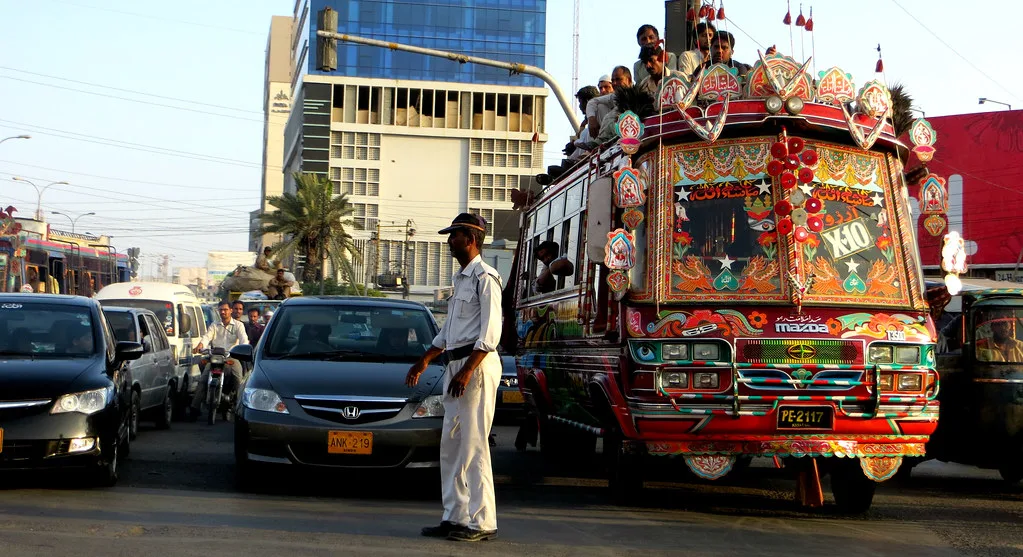Being stuck in traffic is one of the daily dreads of each person employed in a countries labor force, be it white collar workers travelling in your environmentally-harmful W-11’s or qin-chi (a 9-person rickshaw) or your blue collar workers travelling in the more recent red-bus service and motorbikes.
And it is with no doubt that each and everyone of us has thought the question “why doesn’t anyone do anything about this traffic?” However, the problem of traffic congestion has long remains unsolved.
From the perspective of Economics, one of the earliest empiricizations of traffic congestion was in the Smeed Report published in 1964, and to water it down-like all markets have a demand and supply curve, where at the intersection point markets clear, the Smeed Report tackles traffic congestion as a market where there exists a supply and demand of traffic congestion and at the intersection the equilibrium volume and speed of traffic, and total traffic costs is determined (Thomson, 1998).
The goal of viewing traffic this way is to determine a ‘price of using the road’ during peak-hours as to minimize traffic congestion by ensuring that each user pays a cost equal to the cost of driving a vehicle plus the cost imposed on other drivers because of one more vehicle on the road.
Throughout the 60 years since the Smeed Report many urban cities have implemented a cost to city-center road utilization with positive, albeit not-so-strong impacts on traffic reduction. Singapore is a pioneer in road pricing where in 1975 it introduced an Area Licensing Scheme —a simple daily license to access the city center.
Hong Kong in 1989, developed and tested an electronic metering system intended to cover road usage, London nearly implemented a city-center licensing system in 1973, and in many of the world’s most congested cities—like Bangkok, Bogota, Manila, Jakarta, and Sao Paulo—road pricing has been proposed at various levels. Yet, aside from Singapore, no other city has managed to implement a similar system successfully.
And a large part of this failure is attributed the lack of trust in in the government to utilize these revenues through either development in public transport and infrastructure or through tax reductions. This same road-block to can be extended on to Pakistan where recent political instability in the past 6-8 years has deeply left us Pakistan’s severely questioning the economically efficient use of our taxes.
A study titled Practices of Traffic Congestion Pricing Policies- Implications and Challenges for Cities in Pakistan by Abdus Samad Farooq, Muhammad Ashraf Javid published in 2024 calculated the Road Price for using the city’s business district in Pakistan’s 5 urban centers during peak hours; Islamabad’s Blue Area, Lahore’s Lahore Fort, Karachi’s Shahra-e-Faisal, Faisalabad’s D Ground, and Rawalpindi’s Saddar.
The study found that for Karachi and Lahore the price for utilizing Shahra-e-Faisal and Lahore Fort during peak-hours would equal to PKR 150 while in the remaining three areas of Islamabad, Rawalpindi, and Faisalabad the cost would be PKR 100, on a side note it is not surprising to see that the 2 Pakistani cities that were in the top 10 of worst Air Quality Index have a higher cost, this is attributed to the fact that pollution caused by suboptimal vehicles induces a bigger marginal cost as the harm to the environment is also taken into account.
Now this might seem like a simple solution to traffic congestion and might make you question the title of this article but a huge and persistent blockade is public acceptability. In a developing country like Pakistan blue-collar workers will be most severely affected as these individuals on average earn ≈ PKR 295.78/ hour, the daily average income (8-hour work shift) ≈ to PKR 2366.24/ day (Salary Expert, 2025).
Simple math shows us that a blue-collar worker will be spending ≈ 12.6% of their daily earnings on just commute. Additionally, in a country where tax evasion is rampant due to distrust in government utilization an additional lump-sum tax will not be readily acceptable by the upper-middle, upper, and elite classes of society.
Other structural challenges and capacity gaps do exist in this daily problem of traffic jams, all of which can be addressed and worked around as provided by literature. However, at the end of the day, traffic congestion can be tackled when there exists a nexus of trust & transparency in government spending for the population to visibly see the best utilization of their taxes.
Writer is a Graduate Scholar of Economics from the Institute of Business Administration- His undergraduate degree is in economics and his research during this time was particularly into traffic congestion and it’s relationship with infrastructure spending.


